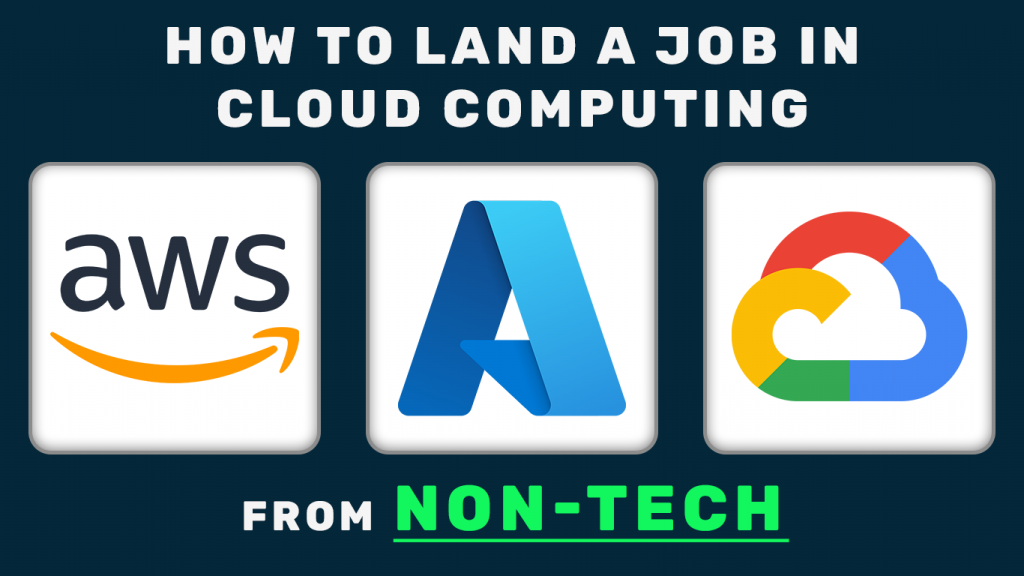Last updated on August 29, 2025
If you’re interested in pursuing a career in cloud computing but lack a technical background, don’t fret. Simply put, cloud computing involves the delivery of computing services over the internet, such as storage, processing power, and applications. In this article, we’ll delve into some essential aspects of cloud computing that you should be aware of to improve your chances of landing a cloud-related job, even without prior technical experience.
3 Things You Need To Have To Land a Job in Cloud Computing
1. IT Fundamentals
Cloud computing can be overwhelming for non-technical people, which is why you should first establish a solid foundation in IT fundamentals before diving into this rapidly growing technology. It may be difficult at first, but once you understand each concept, you will be able to easily learn any emerging technologies that are thrown at you. Here are the fundamentals you must understand:
- Operating System – most of the time, you’ll be working with either Linux or Windows servers, so it’s important to have a good understanding of how computers work, including processes and threads, memory management, and filesystems.
- Network & Security – when deploying a virtual machine or containers in the cloud, you’ll need to set up the CIDR, access control, and encryption. These are some of the important concepts you need to know to protect the application data.
- Databases – data from applications is stored and managed in databases, which can come in different types, such as relational, NoSQL, and graph databases. Each type of database has its own unique strengths and applications.
- Programming – it is necessary to be familiar with at least one programming/scripting language in order to automate repetitive tasks or create a solution. Applications are made up of both front-end and back-end components that communicate via an API. Python or JavaScript are good languages to start with for beginners because they are relatively easy to learn.
2. Certifications
Once you have acquired a strong grasp of the basics of cloud computing, your goal should be to obtain a certification from the leading cloud service providers. However, it is important to keep in mind that a certification does not guarantee employment. Rather, it should be viewed as a means of validating your understanding of cloud services and which tools to use in line with your organization’s specific requirements. Furthermore, certifications can serve as proof to prospective employers that you possess the necessary knowledge and skills to handle cloud-based projects and solutions.
There are currently several certifications offered for each career path. If you have not yet determined which specialization to pursue, it is recommended to start with associate-level certificates. It is essential to keep in mind that, for starters, you only need to have one certification from the following cloud providers:
- Amazon Web Services (AWS)
- Microsoft Azure
- Google Cloud Platform (GCP)
3. Portfolio
Lastly, after you’ve gained the necessary knowledge and certifications, you should begin building your portfolio by developing applications that use cloud services. This way, you can demonstrate your abilities to potential employers and set yourself apart from other applicants. If you’re not sure how to start a portfolio, consider these 5 AWS Cloud Projects for Beginners. Furthermore, pro bono work is an excellent way to improve your skills by working on real-world projects while giving back to the community.
Final Remarks
You can also consider participating in hackathons, contributing to open-source projects, or seeking a mentor to help you along the way to broaden your knowledge of various cloud computing technologies. Remember that transitioning into a cloud computing career from a non-technical background may take time and dedication, but it is certainly doable with perseverance and hard work. It is also beneficial to keep up with the latest trends and developments in cloud computing by following industry news, attending conferences, and networking with industry professionals.

















